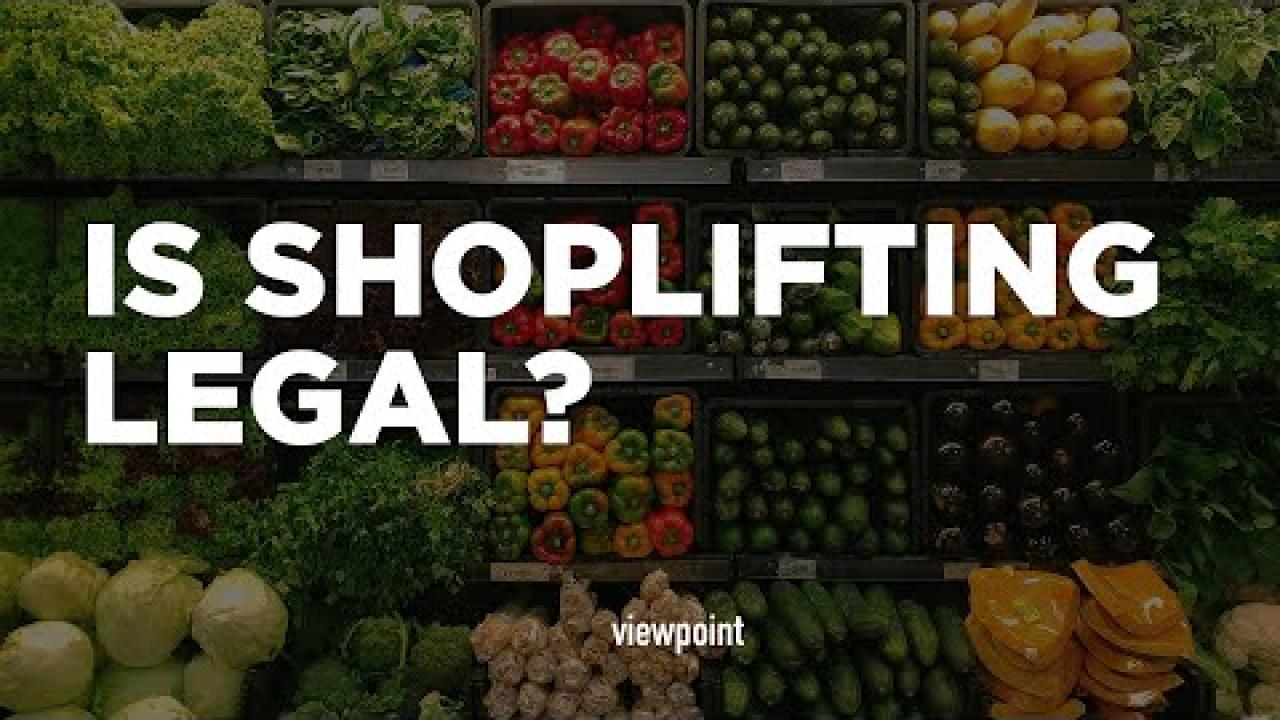
Is Shoplifting Legal?
Frustration over inflation is a real and increasing problem. No one is happy to arrive at the checkout aisle only to discover that the same basket of groceries they purchased last month for one price now costs 7 percent more. It gets even more frustrating when the next trip to the grocery store results in yet another price increase and an even higher bill. With wages mostly stagnant, what is a person to do? An increasing number of people believe they have found the ultimate solution—if it’s too expensive, just put it in your bag and walk out!
Frustration over inflation is a real and increasing problem. No one is happy to arrive at the checkout aisle only to discover that the same basket of groceries they purchased last month for one price now costs 7 percent more. It gets even more frustrating when the next trip to the grocery store results in yet another price increase and an even higher bill. With wages mostly stagnant, what is a person to do?
An increasing number of people believe they have found the ultimate solution—if it’s too expensive, just put it in your bag and walk out!
You may be familiar with the recent surge in shoplifting in California, especially around San Francisco. This was the direct result reclassifying theft under $950 dollars as a misdemeanor. Many fail to realize that this problem stretches to areas that have not reclassified laws, including here in Canada.
While not alone in facing this increase in theft, grocery stores appear to be bearing the brunt of the cost. The Canadian Press reported that “a growing number of supermarkets report an increase in thefts of food and pharmacy products” (“Supermarket theft rising, shoplifters more aggressive, warns grocery industry,” February 8, 2022). The article goes on to state that the data is difficult to track as retailers often respond by asking the suspect to leave, rather than involving police.
Why wouldn’t a grocer want to involve the police? It is not the same situation as California, where the passing of a proposition essentially made shopkeepers powerless. Yet the results are much the same. So, what is happening here in Canada to foster similar increases in shoplifting? Writing for CBC News, David Burke summarized it with this impactful statement:
“Our justice system is crumbling both on a federal level and provincial level” (“Shoplifting and other petty-crime cases are being dropped by courts,” May 30, 2019).
Burke explains,
“Across Canada, people accused of petty crimes like shoplifting, minor assault and fraud are walking free—because the justice system doesn’t have time to deal with their cases, as it struggles to move more serious crimes through the courts.”
Crime has increased to the point where the system does not have enough time to prosecute “less serious” crimes like shoplifting. Note that Burke’s article was written prior to 2020, which, along with the ensuing downturn, has created an environment where the normalization of shoplifting has accelerated.
Two recent trends have worked to push this crisis forward. First, as the labour market shrank and consumers expressed a desire to limit interactions, many stores became increasingly reliant on self-checkout stands. These stands allow customers to scan their own merchandise before bagging and paying. How we act when we believe no one is watching is a vital aspect of one’s character, yet the opportunity to avoid payment is too much for some to ignore.
Second, inflation has resulted in soaring prices, leading some to take desperate measures to pay their bills. A recent Toronto Star article titled “Confessions of a Shoplifter” showed the moral gymnastics of one shoplifter:
“I don’t have any kind of moral quandary with stealing food. If the prices were fair… I’d pay.”
The article goes on to show that this individual was not alone in his line of reasoning:
“The Star spoke to several Toronto residents for this story who say they’re shoplifting more as food prices increase and feel justified in doing so” (January 30, 2023).
These two trends can be summarized as opportunity and motive: increased opportunity to shoplift and increased motive to do so. Combine these two elements with a decrease in the moral fortitude to simply say, I will not take what is not mine—I will not steal, and you are left with the perfect environment for a shoplifting epidemic.
What about the future? If the shoplifting crisis is not being addressed due to backlogs in the criminal justice system and that trend continues, what comes next? What will be the next law to become unenforceable and essentially abolished? If a few percentage points of inflation are all it takes to justify and normalize something that was previously seen as unequivocally wrong—stealing—then what becomes justifiable next?